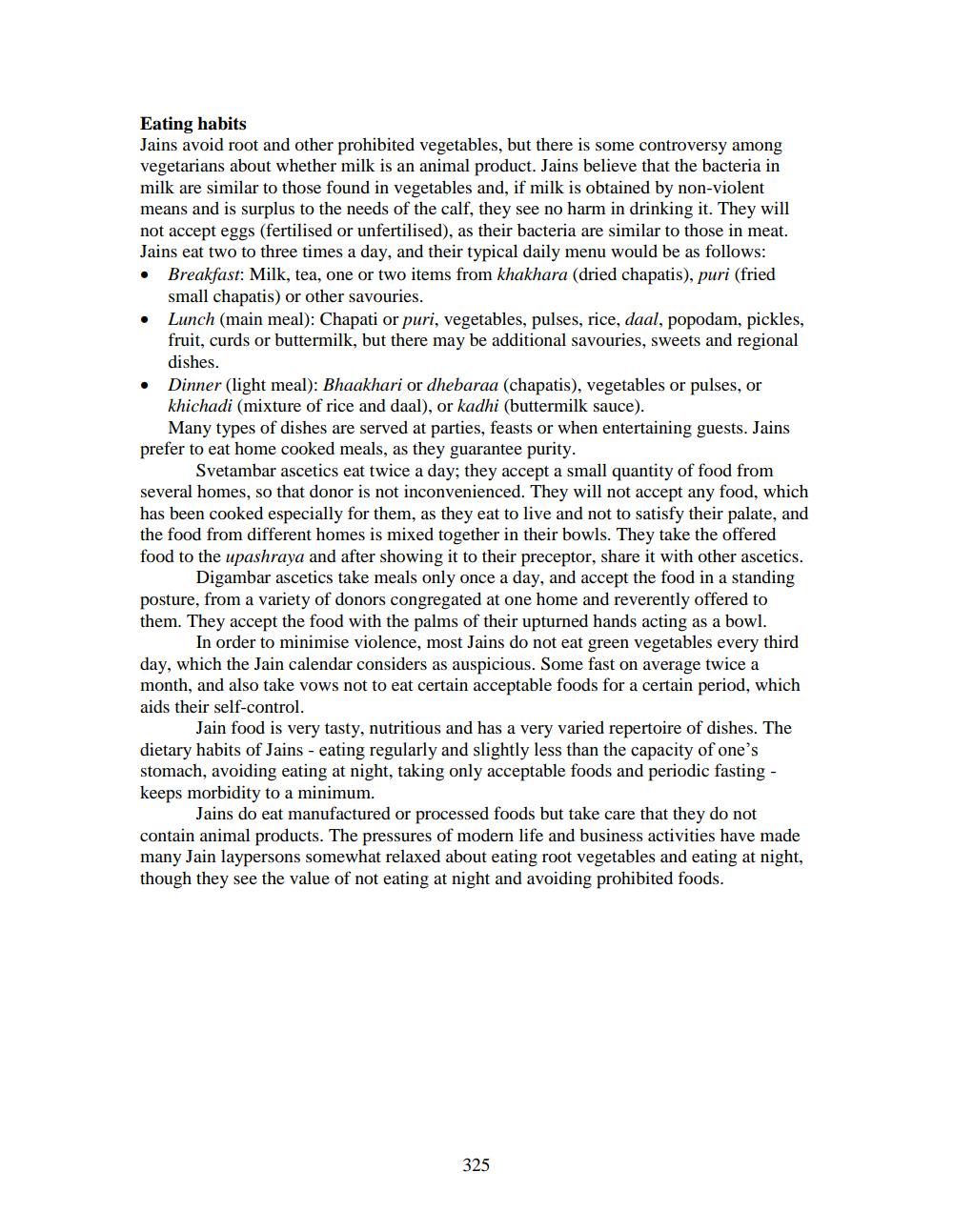________________
Eating habits Jains avoid root and other prohibited vegetables, but there is some controversy among vegetarians about whether milk is an animal product. Jains believe that the bacteria in milk are similar to those found in vegetables and, if milk is obtained by non-violent means and is surplus to the needs of the calf, they see no harm in drinking it. They will not accept eggs (fertilised or unfertilised), as their bacteria are similar to those in meat. Jains eat two to three times a day, and their typical daily menu would be as follows:
Breakfast: Milk, tea, one or two items from khakhara (dried chapatis), puri (fried small chapatis) or other savouries. Lunch (main meal): Chapati or puri, vegetables, pulses, rice, daal, popodam, pickles, fruit, curds or buttermilk, but there may be additional savouries, sweets and regional dishes. Dinner (light meal): Bhaakhari or dhebaraa (chapatis), vegetables or pulses, or khichadi (mixture of rice and daal), or kadhi (buttermilk sauce).
Many types of dishes are served at parties, feasts or when entertaining guests. Jains prefer to eat home cooked meals, as they guarantee purity.
Svetambar ascetics eat twice a day; they accept a small quantity of food from several homes, so that donor is not inconvenienced. They will not accept any food, which has been cooked especially for them, as they eat to live and not to satisfy their palate, and the food from different homes is mixed together in their bowls. They take the offered food to the upashraya and after showing it to their preceptor, share it with other ascetics.
Digambar ascetics take meals only once a day, and accept the food in a standing posture, from a variety of donors congregated at one home and reverently offered to them. They accept the food with the palms of their upturned hands acting as a bowl.
In order to minimise violence, most Jains do not eat green vegetables every third day, which the Jain calendar considers as auspicious. Some fast on average twice a month, and also take vows not to eat certain acceptable foods for a certain period, which aids their self-control.
Jain food is very tasty, nutritious and has a very varied repertoire of dishes. The dietary habits of Jains - eating regularly and slightly less than the capacity of one's stomach, avoiding eating at night, taking only acceptable foods and periodic fasting - keeps morbidity to a minimum.
Jains do eat manufactured or processed foods but take care that they do not contain animal products. The pressures of modern life and business activities have made many Jain laypersons somewhat relaxed about eating root vegetables and eating at night, though they see the value of not eating at night and avoiding prohibited foods.
325




